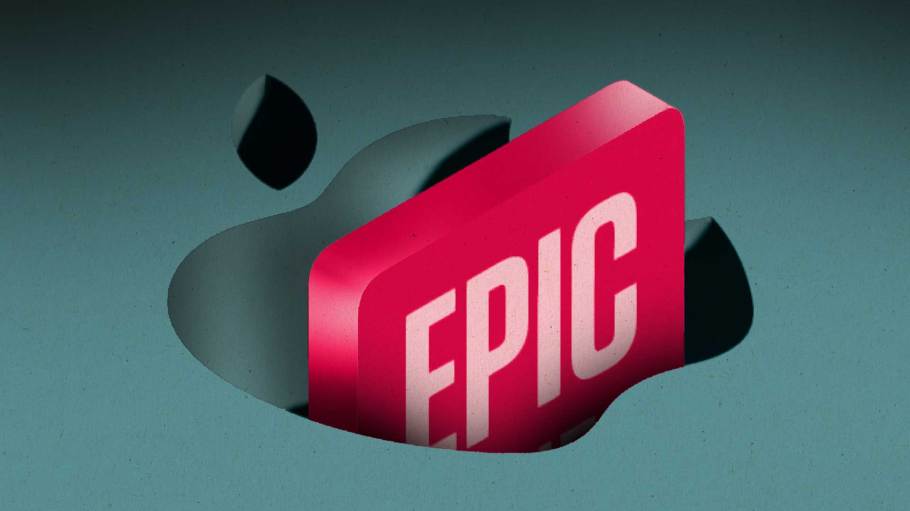Epic Games Must Make Mobile Games Work in 2024
In this article
After a rough 2023, Epic Games kicked off the new year with a major Disney deal, receiving a $1.5 billion investment to build experiences around Disney IP within Fortnite.
But this won’t matter without the legal intervention Epic has been awaiting.
In February, Apple unbanned Epic’s developer account so the company could develop its own store within iOS, thanks to the EU’s Digital Markets Act, which is making Apple allow third-party storefronts within the App Store.
For years, Apple has been accused of anticompetitive practices that have seen it take 30% cuts of in-app purchases, a policy Epic tried to skirt in 2020, leading to bans of its various iOS apps, including Fortnite.
Epic does well for itself outside of mobile and is estimated to have earned as much as $6 billion in 2022. But when most of those earnings come from Fortnite and the $90 billion mobile games industry comprises half of the entire video games market, it’s nerve-wracking to consider how much money has fallen by the wayside since 2020.
After a hiccup saw iOS again terminate Epic’s developer account in Sweden last week, the EU intervened right away and ensured Epic’s regional return to mobile would stick. Still, that is just Europe, and the lack of mobile revenue after all this time caught up to Epic in a bad way last year.
Epic has so far steered clear of the nearly 10,000 gaming-industry layoffs that have defined the first quarter of 2024, but that doesn’t change the fact that Epic’s 16% cut of staff last year made up a good portion of those 10,000 cuts throughout 2023.
The company has multiple businesses, including its Unreal Engine software that has long predated Fortnite, but the new business front seen in Epic’s 2022 acquisition of music platform Bandcamp was undone last October. Bandcamp was whisked away to Songtradr in a move that triggered a labor-violations action with Bandcamp’s union.
Known for its generous share of music sales with independent labels and artists, Bandcamp was a theoretical match for Epic Games CEO Tim Sweeney, who has crafted business models around Unreal Engine and the Epic Games Store that see Epic take far fewer shares from third-party developers than the App Store does.
However, the move toward Bandcamp was likely motivated by a desire to bring swaths of music to Fortnite’s in-game experiences as a cheaper alternative to licensing the libraries of majors like UMG, WMG and Sony Music, a practice Fortnite has had no choice but to revert to, as music experiences tied to big artists like Travis Scott have produced record engagement.
Furthermore, Fortnite’s publishing and storefront business isn’t all it’s cracked up to be.
Epic Games Store generated nearly $1 billion in consumer sales last year, but only a third of that came from third-party games, cementing the company’s aspiring Steam competitor as a marketplace mostly for its own titles.
As for the $310 million that did come from third-party sales, Epic would have earned just 12% of those sales, or nothing in the case of some games that released exclusively on Epic Games Store through its First Run program. Second-party titles published by Epic aren’t much help either, as last October’s “Alan Wake 2” has sold only a modest 1.3 million units as of the start of February, despite its critical acclaim and multiple Game Awards accolades.
Per the NPD Group, Fortnite still ranks at the top of engagement charts for PlayStation 5 and Xbox Series consoles, a sign that much of its revenue is not being made within Epic’s store, where it doesn’t have to split in-game sales with Sony or Microsoft. On top of that, Epic’s prioritizing of its own store means Fortnite isn’t available on leading PC storefront Steam, cutting it off from yet another top market.
It’s beyond important that Epic’s return to mobile in the EU also lays the groundwork for a full comeback globally. Disney has not disclosed details of what it will earn from sales derived from its Fortnite experiences, but it’s hard to imagine its $1.5 billion stake won’t necessitate deep cuts of sales.
After all, EA just announced it is moving away from licensing outside IP after years of making multiple “Star Wars” games, at least one of which is canceled, hinting that Disney properties do not come cheap.
Without mobile sales, the most lucrative of all, revenue splits from other platforms could make Epic’s Disney deal yet another dud.

